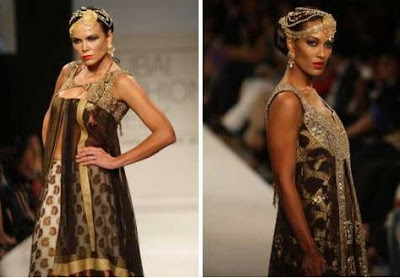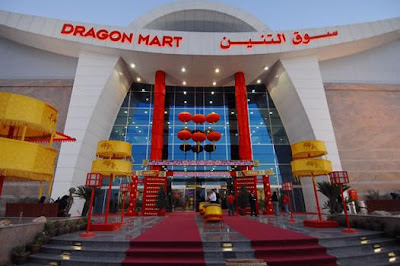By Graham Snowdon, Guardian News and Media Limited
Planning a career shift may seem daunting. But with the right attitude and expert advice you can't go wrong.
Changing careers isn't easy but it helps to know where to start, who to target and how to succeed at interviews. Here are some tips:
1. Make the first move
"List out career options you think you would really enjoy, not just the ones you think you can do," says Catherine Roan, managing director of career change consultants Careershifters.org. "Research how others moved to these careers."
2. Think about things you're good at
Tanya de Grunwald, founder of GraduateFog.co.uk says: "A good job search should start with you, not your CV. Are you an ideas person? Are you good at explaining things? Look closer and you'll find moving towards jobs you'll enjoy."
3. Think about the skills you have picked up
Is there crossover between what you are good at and the skills you have? If so, use these lists to help identify the types of jobs and industries you are most suited to.
4. Do your homework
"Many careers sound exciting when you only know a little about them," says Dr Rob Yeung, executive coach at consultancy Talentspace. "Make sure you know what's boring about a job and what's great."
5. Dip your toe before taking the plunge
"Research what it entails, what training you may need and talk to people doing that job," Roan says. "If possible, try it out part-time or shadow someone in the role."
6. Tidy up your CV
Talk to recruiters to establish what they consider to be an above-average CV. Consider asking a CV-writing agency "but only if it comes recommended by someone you know," says Rowan Manahan, author of Ultimate CV: Trade Secrets from a Recruitment Insider.
7. Create your own marketing pack
"Choose a high-quality paper with matching envelopes," says James Innes, author of The CV Book, The Interview Book and Brilliant Cover Letters. "A co-ordinated image can really impress; it's a small investment which could pay huge dividends."
8. Don't go over the top
"Razzmatazz won't help you be taken seriously," advises Rebecca Corfield, author of Knockout Job Presentations. "Be unforgettable for the right reasons. Impact comes from strong words, having a clear and logical layout, and detail about what makes you special."
9. Have some trusted friends give you feedback
"When you've been tinkering with your CV for hours it's easy to miss glaring typos, so make sure someone else has seen it," says De Grunwald. "The best people to canvass are those already working in your chosen industry."
10. Include a cover letter
"Many people lose out not because of their CV but because of their cover letter — or lack of one," Innes says. Create a template cover letter and modify it to suit your needs.
11. Consider a video CV
Go for this if you are in a technical field. But be careful, it's easy to do this very badly. "Produce a 30-second, a 90-second and a 5-minute piece and make sure the channel — YouTube or Vimeo — reflects the professional image you are seeking to cast and track viewing stats closely to assess if your approach is working."
12. Customise your CV
"Put yourself in the shoes of each recruiter and make sure you've emphasised the bits they'll be most interested in," De Grunwald says. "Don't use jargon and if your former employers aren't well-known, explain briefly the nature of each."
13. Where and how to look
Search online by area and job title, and repeat your search every day. "The methods that pay most dividend are Google Alerts for the wider market and manually tracking specific companies you would like to work for," Manahan says.
14. List organisations you would like to work for
Visit their websites and look for employment information — you may find jobs that don't appear elsewhere online.
15. Look under your nose
While many large firms use the internet to find employees, most small businesses do not. A local paper can still be a useful place to find jobs in your town.
16. Cast the net wide
"Difficult times require more creative solutions and you will find more options this way," Corfield says. "Don't be put off by commuting. It can provide time for reading, learning or just thinking."
17. Aim high and low
Apply for jobs above and below the level you are working at. It's hard to generalise but particularly if switching careers, you need to be realistic about the level of opportunity that may be open to you.
18. Apply to unconventional places
You may assume your local hospital, for instance, doesn't have any jobs you would be suited to if you aren't a healthcare worker — but you might be wrong. "Most large organisations have admin, IT and HR staff," Corfield says.
19. Look out for scams
Scams encompass everything from "work at home" to "pay for a list of jobs". "Some agencies trawl for good CVs and approach companies with the claim that they have the cream of the market," Manahan says. "Make sure the advertisement you're responding to is a real job."
20. Build an online profile
Put your CV online. Download it and see how it looks and make sure it prints out the way you want it to.
21. Use a universally accepted document format
"PDF or Word-compatible are the best," Innes says. "If your CV is in a different format, you're reducing the chances of someone being able to access it."
22. Use the right keywords
The goal is to have your CV pop up at the top of the list when a potential employer searches for those keywords. "Gather as many job-description and person-specification documents as possible as you proceed with your search," Manahan says.
23. Become an expert in your field
"Think about articles you could write for trade journals, blogs and other opportunities to build credibility in your field," Yeung says.
24. Build online profiles
"For findability, it's hard to beat a good profile on LinkedIn," Manahan says. "Start the profile privately, hone it and go public to reach a wider audience."
25. Keep your profiles accurate and up-to-date
"Employers frequently use the internet as a quick and easy means of checking up on applicants. Don't get caught out," Innes says.
26. Behave yourself online
If you use a more general social networking site, such as Facebook or MySpace, be careful to present yourself in the best light and make sure privacy settings prevent casual viewers from seeing your full profile.
27. Be old-fashioned
Many employers are geared up to receive applications online but sometimes, submitting your application and following up by phone is the best approach.
28. Marshal your resources
"In a healthy market, 55 per cent of jobs beyond graduate/entry-level positions will be filled through some level of personal contact and in an unhealthy market the figure is higher," Manahan says. "Let people know what you are looking for."
29. Ask for a referral
If you know someone who is leaving a job which feels appropriate, ask them to put in a word on your behalf. You may be able to apply for the position before the company readvertises the opening.
30. Make use of any resources your former employer offers
If you have been laid off, consider accepting any assistance offered by your employer with CV help, retraining or career counselling. "It can help you start on the next phase of your career," Corfield says.
31. Apply for benefits
If you are eligible, apply for unemployment benefits right away, even if you think you will land a new job.
32. Be professional
Treat your job search like a job in itself. "Finding a new job, especially if you are changing careers, is not easy. It can seem an overwhelming task at times. Keep busy and you'll get there," Roan says.
33. Get a sensible e-mail address
"Set up a separate address for career management and point your social networks to that address. Set up a professional signature on your e-mail account that shows your address, phone and key online sites."
34. Be easily contactable
The phone number you put on your CV should be one you can either answer immediately or one that has voicemail.
35. At the interview
Be prepared for common questions such as "Where do you see yourself in five years?" or "What are your strengths and weaknesses?" Have the answers to such queries up your sleeve.
36. Rehearse to a live audience
"Express yourself in an articulate fashion by asking a friend to throw likely questions at you," Yeung says.
37. Create an "elevator speech" about yourself
"Get ready to talk about your skills and experience," Corfield says. "How does your personality fit? What is your vision for the job? Why are you the best person to do it?"
38. Turn the tables on your interviewer
"Try to find out as much as you can about your interviewer," Innes says. "You will have a head start."
39. Free the skeletons in your closet
Be prepared to address the six-month gap in your employment history or the reason why you suddenly had to leave your last position.
40. Be honest
Don't claim to have degrees or experience you don't.
"Remember that many organisations check references," Yeung says. "Any inconsistencies could lead to an employer rescinding a job offer."
41. A class apart
Dress appropriately. Presentation can make the difference in whether or not you are hired or even the salary you are offered. "Dress at least as well as you would when actually turning up to do the job — preferably better," Innes says.
42. Be nice to everyone you talk to
This is especially true when you aren't sure who they are. "I once assumed the girl who greeted me and asked if I wanted a coffee was a secretary — but when she sat down and started the interview I realised she was the boss," De Grunwald says.
43. Be on time
Phone in advance to confirm time, place and directions. Scout out the location in advance to check parking, transport and cafés. "If you are late, phone and offer to reschedule but don't expect to be taken as seriously as the candidate who showed up on time," Manahan says.
44. Send a thank-you note
Follow up an interview with a brief courtesy message (an e-mail will do) a few days later. Not many applicants bother with this and it will keep you at the front of an interviewer's mind.
45. Don't pester an interviewer
Waiting to hear back after an interview can be stressful but resist the temptation to bombard your potential employer with e-mails and phone calls. Let the process run its natural course.
46. Take the long view
Get in touch with your old college. Find out whether it has an alumni job-placement scheme. "If you're serious about finding work you should leave no stone unturned," De Grunwald says.
47. Take some classes
"You need to show you wants to learn new things," Corfield says. "Practical skills can increase confidence, languages can widen your world and academic subjects will boost your CV."
48. Think about the future
"Some industries are likely to have huge demands for jobs in future," Roan says. "Do your research to find out where these vacancies will be and if you would be interested in working for."
49. Create your own job
Consider starting your own business, either consulting for your present field or doing something new.
50. Don't give up
"Remember you are not alone," Roan says. "Many people have been where you are. Believe in yourself, be clear on what you want and keep going."



































